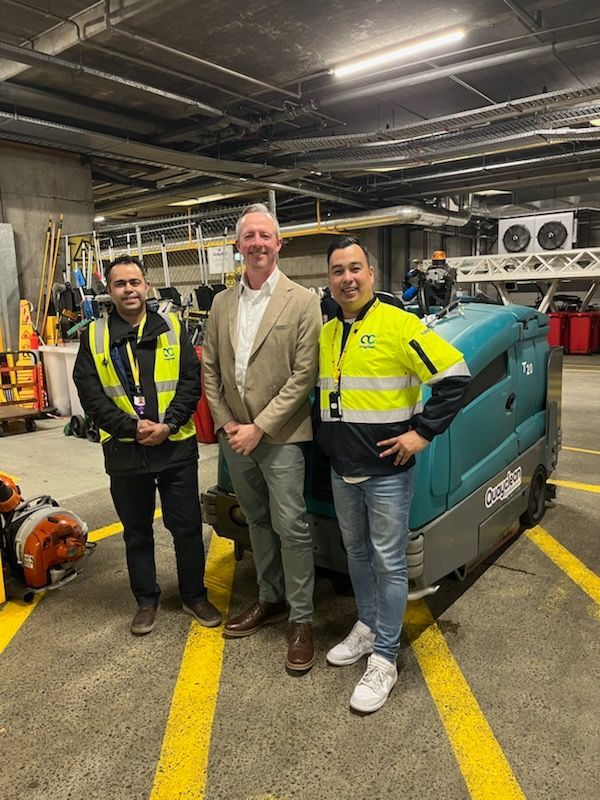By Nicky Crewe
•
May 1, 2025
A Wake-Up Call from Heathrow On the 20 th March this year, a fire at an electrical substation 1.5 miles from London’s Heathrow Airport brought operations to a standstill, affecting more than 1300 flights, tens of thousands of passengers and triggering a cascade of disruption across airlines, accommodation providers, and the broader tourism ecosystem. While the immediate impacts were felt in the UK and Europe, the incident offers timely lessons for New Zealand’s tourism sector, both for operators preparing for the challenges of the winter season, and those who take the winter to prepare for another busy summer. Learning from Heathrow: What Went Wrong? The Heathrow fire exposed several critical vulnerabilities — from outdated emergency procedures and ageing infrastructure to insufficient business continuity planning among key partners. While emergency services responded rapidly, the ripple effect of delayed flights, lost revenue, and stranded travellers highlighted a broader industry-wide issue: many businesses lacked flexible contingency plans to respond effectively to the unexpected. Key takeaways from Heathrow include: Reacting well but responding poorly : Like many businesses, the initial reaction was well executed – teams dealt well with the initial emergency right in front of them, but the wider / longer term response was less successful. Single Point Failures : Overreliance on critical infrastructure without backups. Communication Gaps : Delays in notifying stakeholders exacerbated customer frustration. Lack of Scenario Planning : Many businesses had never rehearsed disruptions of that scale. Winter in New Zealand: A Stress Test in Waiting New Zealand’s winter tourism season brings its own set of risks — extreme weather events, road closures, power outages, and rising insurance costs. As seen with the most recent cyclone and flooding, even well-known holiday destinations can be brought to a halt by nature or infrastructure failure. For tourism businesses — from ski operators to transport operators, regional attractions, or boutique accommodations — the Heathrow incident is a potent reminder that resilience isn’t just about recovery. It’s about readiness. Five Practical Steps to Strengthen Resilience Review and Test Your Emergency Plans Don’t wait for the storm. Walk through scenarios like fire, flood, and utility outage now with your wider team. Ensure your team know their roles and responsibilities. Scenario sessions are a chance to fail safe and fail fast – and build confidence in the team to respond when the real thing hits. Diversify Communication Channels Ensure you can reach your staff and customers even when phone lines are down, or internet is patchy. Invest in alternate channels like SMS platforms or satellite phones in remote areas. Make sure this is recorded in a Communications Plan, and you have printed copies available for key people in case of an IT outage. Strengthen Supply Chain and Service Contingencies How reliant is your operation on your suppliers? What happens if your supplier can’t deliver? Build relationships with backups, especially for food, fuel, transport, and critical maintenance. Make sure your suppliers have backup plans and that they share these with you. Ensure Insurance Covers Today’s Risks Talk to your broker and together review policies for gaps. Confirm coverage includes business interruption due to natural hazard incidents or extended utility outages. Will they cover you in a cyber crime related incident (i.e. your website is hacked or booking system is not available for transactions)? Build a Culture of Preparedness Make resilience a shared responsibility. Train staff, empower decision-making, and reward proactive thinking. A crisis rarely fits a neat Monday-Friday 9 – 5 timeframe, they happen on a random Sunday afternoon, when you have a casual crew on, so building everyone’s confidence and resilience is essential. Turning Disruption into Opportunity Heathrow’s disruption cost millions — but it’s also driving urgent investment in better systems. New Zealand tourism operators have the advantage of time and foresight. By acting now, they not only protect their business, but build trust with visitors and partners who value reliability. Let’s use this winter not just to survive the cold — but to build stronger, smarter tourism businesses that thrive through uncertainty. About the Author Adam Lynch is a resilience advisor with Reliance Risk, helping tourism and hospitality organisations across Australasia design robust plans for the unexpected.









